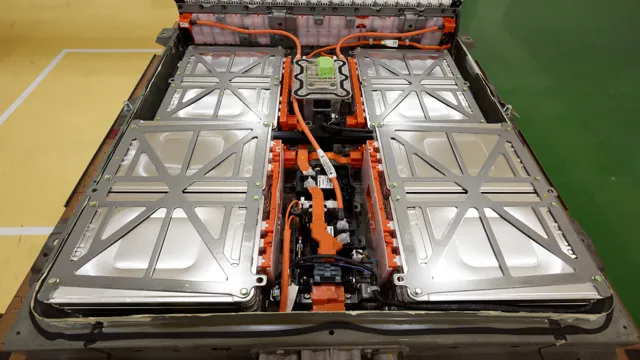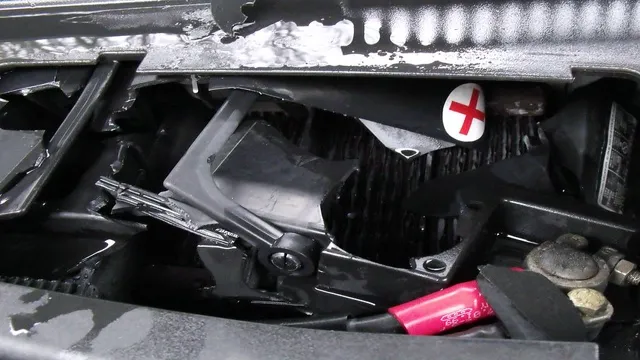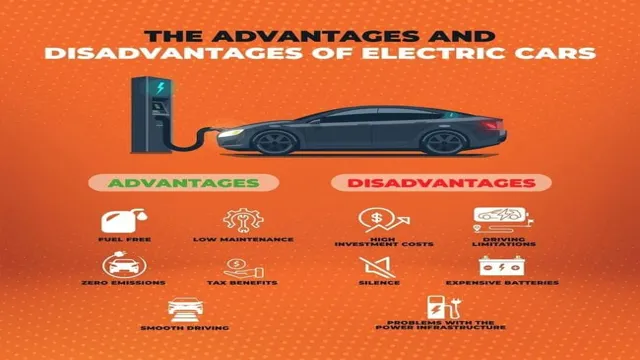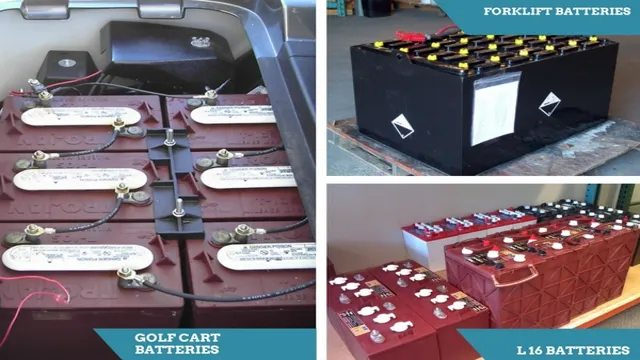Revolutionizing the Road: The Power of Electric Car Battery Systems
Electric cars are rapidly gaining popularity as an environmentally-friendly alternative to traditional gas-powered vehicles. But what exactly makes electric cars so eco-friendly? And how do they work, anyway? In this blog post, we’ll dive into the science behind electric cars and explore the technology that makes them possible. From the battery to the motor, we’ll break down each component and explain how they work together to create a smooth, efficient driving experience.
So buckle up and get ready to learn about the inner workings of electric cars!
Understanding Electric Car Battery Systems
Electric car battery systems are complex and require a bit of understanding to get the most out of them. The battery is the heart of an electric car, which is why they are so powerful, and it is the component that helps to propel the car forward. Understanding electric car battery systems will help you to get the most out of them, keep your car in good condition, and help you to save money on repairs and replacements.
There are many components to an electric car battery system, such as the battery management system, the battery pack, and the charging system. Each of these components is essential for the car’s proper functioning, and they need to be maintained regularly. Additionally, the battery in electric cars is designed to last for many years, making them an excellent choice for environmentally conscious individuals.
Overall, electric car battery systems are fascinating pieces of tech that are sure to revolutionize the automotive industry for years to come.
Types of Electric Car Batteries
Electric car batteries come in different types, each with its own unique features and advantages. These types include lead-acid batteries, nickel-metal hydride (NiMH) batteries, and lithium-ion (Li-ion) batteries. Lead-acid batteries are the oldest and most common type of electric car battery.
They’re inexpensive and reliable, but they’re also heavy and don’t provide as much power or range as other types. NiMH batteries are more powerful and have a longer lifespan than lead-acid batteries, but they’re also more expensive. Li-ion batteries are the newest and most advanced type of electric car battery.
They’re lightweight, provide more power and range than the other types, and have a longer lifespan. However, they’re also the most expensive. Understanding the different types of electric car batteries is important because it can help you choose the right one for your vehicle based on your needs and budget.
Whether you prioritize cost, range, or power, there’s a battery type that can meet your requirements.
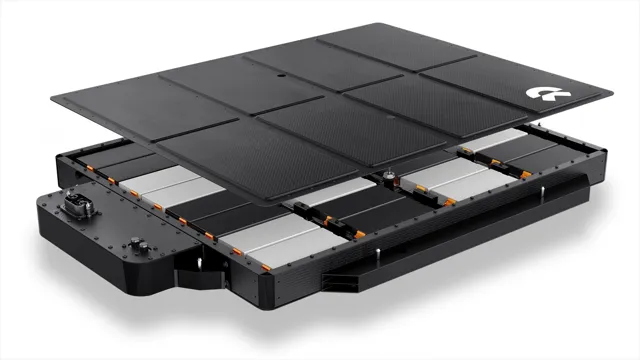
Battery Range and Charging Times
Electric car battery systems are a crucial aspect that determines the range and charging time of an electric vehicle. Battery capacity is generally measured in kilowatt-hours (kWh), and the higher the kWh rating, the longer the range. For example, a Tesla Model S can cover up to 400 miles on a single charge, while a Nissan Leaf has a range of around 150 miles.
Moreover, charging times may vary depending on the charger type and the battery capacity, but most EVs can be charged fully in 6-12 hours with a level 2 charger or under an hour for fast DC charging. However, it’s always advisable to make sure you charge your electric car frequently to avoid any undesirable low battery situations. Therefore, before buying an electric car, it’s essential to take its battery range and charging times into account to ensure it fits your driving needs.
Benefits of Electric Car Battery Systems
Electric car battery systems offer numerous benefits for both drivers and the environment. One of the key advantages is their eco-friendliness. Unlike traditional gasoline-powered cars, electric vehicles produce zero emissions, reducing air pollution and promoting cleaner air.
Furthermore, the maintenance costs of electric cars are relatively lower than conventional cars because fewer moving parts mean less wear and tear on the battery system. Additionally, electric cars have regenerative braking systems that recharge the battery as they decelerate, making them more efficient and increasing their range. With the advancements in technology, electric car batteries have the potential to become more affordable, longer-lasting, and more powerful, which further strengthens their appeal and viability as sustainable alternatives.
Overall, electric car battery systems play a critical role in promoting a greener future and reducing our dependence on fossil fuels.
Environmentally-Friendly
Electric car battery systems are increasingly becoming popular as people become more environmentally conscious. These batteries are essential in the functioning of electric cars, which are eco-friendly and do not emit harmful gases into the environment. The benefits of electric car batteries go beyond just having a greener environment.
Since the cost of electricity is lower compared to petrol, electric cars are more affordable to run than conventional gas cars, leading to significant savings on fuel costs. Moreover, electric car batteries require less maintenance than traditional engines, thus reducing maintenance costs as well. Additionally, electric car batteries can serve as backup power supplies in case of power outages, making them more versatile than traditional car engines.
If you are looking for an environmentally-friendly, cost-effective, and low-maintenance transport alternative, an electric car battery system is the way to go.
Lower Fuel Costs
Electric car battery systems offer a range of benefits over traditional gas-powered vehicles, one of which is lower fuel costs. Gasoline prices can fluctuate significantly, but with an electric car, you can charge at home using a standard outlet or a specialized charging station. This allows you to avoid the volatility of gas prices and save money in the long run.
Charging your car can cost just a fraction of what you’d pay for a gallon of gas, making it an incredibly cost-effective option. In addition, many electric cars come with regenerative braking, which captures energy that would otherwise be lost during braking and uses it to charge the battery. This further helps to reduce your fuel costs and environmental impact.
Overall, by investing in an electric car battery system, you can save money on fuel while also supporting a sustainable and eco-friendly transportation solution.
Maintenance Savings
When it comes to the benefits of electric car battery systems, one of the most significant advantages is the amount of maintenance savings you can enjoy. Unlike traditional gasoline-powered vehicles, electric cars have fewer moving parts, which means less wear and tear, and ultimately lower maintenance costs. With an electric car, there’s no need for oil changes or filter replacements, and the brakes can last longer due to the regenerative braking system.
Additionally, electric vehicles have fewer fluids that need to be changed or topped off, making maintenance a breeze. When you factor in the lower fuel cost of electric vehicles, it’s clear that electric cars not only benefit the environment, but they also save you money in the long run.
Challenges of Electric Car Battery Systems
Electric car battery systems have come a long way and continue to evolve, but there are still several challenges to overcome. One of the biggest challenges is range anxiety, which is the fear of running out of power before reaching a charging station. Although modern electric vehicles have longer ranges than their predecessors, they still lag behind traditional cars in terms of range.
Another challenge is the high cost of electric car battery systems, which make them less accessible to consumers. Additionally, the process of manufacturing batteries, which involves the mining and extraction of rare materials, can have negative environmental impacts. Nevertheless, manufacturers are working on ways to improve the efficiency and range of electric car battery systems while reducing their environmental impact and overall cost.
By addressing these challenges, electric cars will likely become more commonplace and accessible to a wider range of consumers in the future.
Cost of Batteries
The cost of batteries for electric cars is one of the most significant challenges facing the industry today. Electric car battery systems require a large amount of expensive materials, such as lithium-ion, which are currently in short supply and can be difficult to source. The cost of the batteries is also large, making the purchase price of electric cars higher than that of their gas-powered equivalents.
However, the cost of batteries is continually falling as battery technology improves, and economies of scale come into effect. In the future, the cost of batteries will eventually come down to a point where electric cars will be cheaper to produce than petrol-powered cars. Nonetheless, the limited range and potential for battery failure remain significant challenges that the electric car industry must continue to tackle.
Additionally, it is essential to consider the life cycle of these batteries and their environmental impacts to ensure that electric cars remain a sustainable and eco-friendly solution for the future.
Battery Life
Electric car battery systems have come a long way over the years. However, one challenge that still remains is the limited range of electric vehicles. To ensure that the batteries last for as long as possible, automakers use various technologies to optimize battery usage, such as regenerative braking and power management systems.
Nevertheless, battery degradation is inevitable, and the effectiveness of these technologies decreases as the battery gets older. Replacing an electric car battery can be expensive and time-consuming, which is why battery life remains a crucial consideration for electric vehicle owners. One way to mitigate this issue is by looking at how you use the vehicle.
As with any battery-powered device, the more you use it, the faster the battery will degrade. But if you can find ways to limit your use of the vehicle or incorporate charging stops into your daily routine, you can improve your battery’s lifespan and avoid costly replacements down the line.
The Future of Electric Car Battery Systems
Electric car battery systems are rapidly evolving with the advancement in technology. The future of electric car battery systems looks bright, with various innovations and improvements being made to increase efficiency, reduce charging time, and extend battery life. Researchers are exploring new materials like solid-state lithium-ion batteries, which are more durable and energy-dense than conventional batteries.
In addition, wireless charging technology has been developed that will allow drivers to charge their cars while they’re on the road, reducing the need for frequent pit stops. Furthermore, the use of artificial intelligence and predictive analytics is being incorporated into electric car battery systems to enhance their performance. Electric car owners can expect to have a smoother and more efficient driving experience in the coming years, as technology continues to improve the electric car battery systems.
Conclusion
So, there you have it – electric car battery systems are the way of the future! With their efficient and eco-friendly technology, they offer a cleaner alternative to traditional gasoline-powered vehicles. And with advancements being made every day in battery technology, the possibilities for electric cars are endless. Plus, let’s face it, there’s just something inherently cool about driving a car that runs on electricity.
So, if you’re looking for a sustainable and stylish way to get around, an electric car might just be the way to go. Shockingly good, wouldn’t you say?”
FAQs
What is an electric car battery system?
An electric car battery system is a collection of batteries that power the electric motor of the car.
How does an electric car battery system work?
The electric car battery system powers the electric motor by converting stored energy in the batteries into electrical energy that can be used to power the motor.
What are the different types of electric car battery systems?
The most common types of electric car battery systems are Lithium-Ion, Nickel-Metal-Hydride, and Lead-Acid batteries.
How long do electric car battery systems last?
The lifespan of an electric car battery system can vary greatly depending on the type of battery, how it’s used, and how well it’s maintained. However, most electric car battery systems can last anywhere from 5 to 10 years before needing to be replaced.
